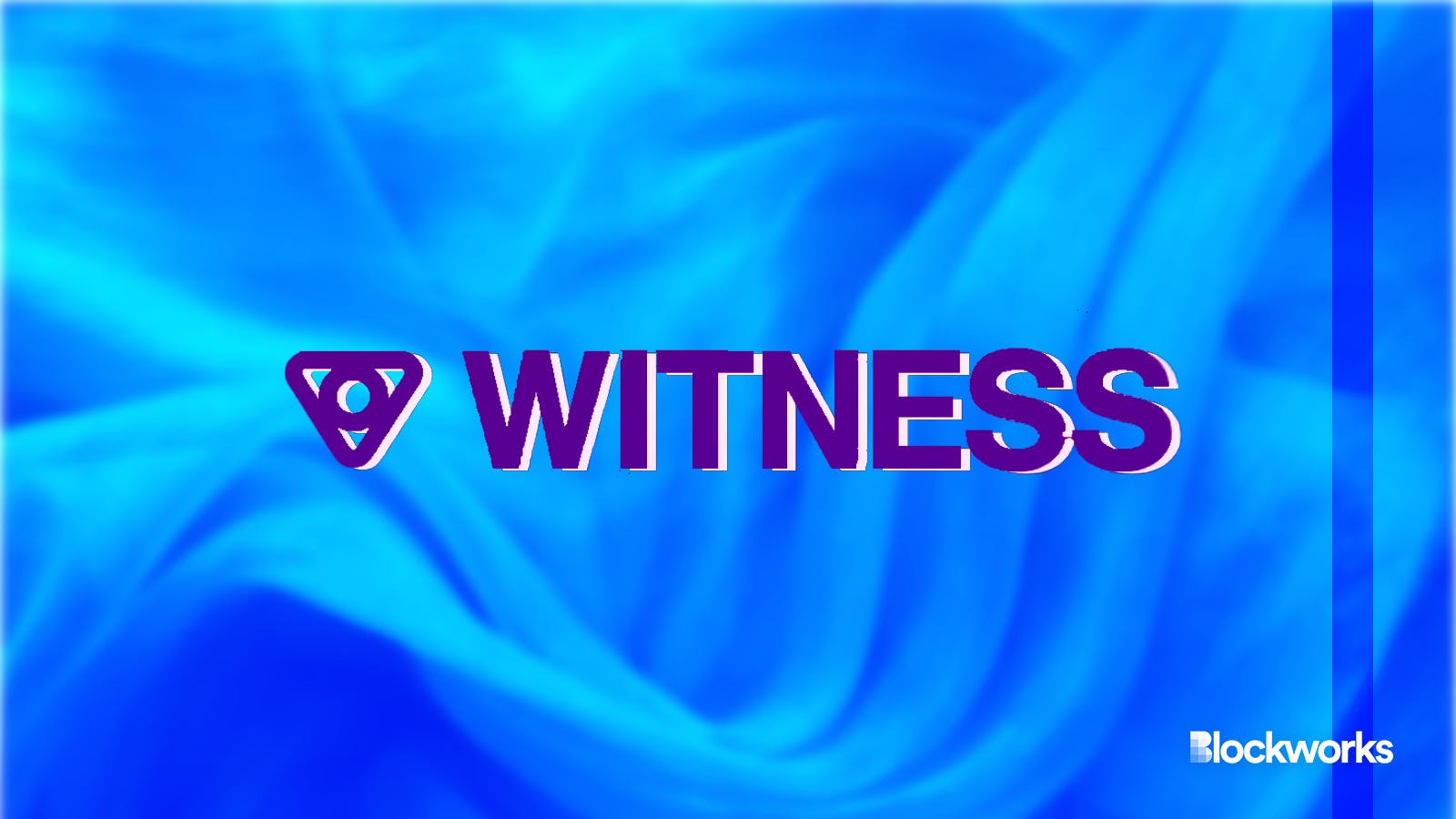Witness wants to change the way we verify digital content
Witness protocol will enable users to gain proofs over their data

Witness and Adobe Stock modified by Blockworks
Research and development company, Witness, has launched a verification protocol after it secured $3.5 million in a seed funding round led by Huan Ventures with participation from Coinbase Ventures and a handful of angel investors.
The company is led by former Paradigm, Google and Facebook engineer Sina Sabet and a former venture investor at Framework Ventures, Joe Coll.
Witness protocol is designed to issue digital ownership using existing blockchain technology. In an interview with Blockworks, Coll notes that Witness enables people to gain proofs over their data which can represent things like attestations signed by two different users.
“That data can be consumed by any application because they can verify it even if the data isn’t fully posted on-chain,” Coll said.
Read more: Self-sovereign identity is not enough
Transaction costs remain a big onboarding problem for crypto products today, with many users unwilling to jump through multiple hoops in order to test out a new product.
What many applications have resorted to in order to gain more user interest is deploying their own blockchain solutions, with cheaper transaction costs. However, Coll said that these solutions still do not tackle the core issue of having to pay multiple fees for each action you make on the blockchain.
What the witness protocol is able to achieve is to make these products free to use, through extending ownership and verification across existing blockchain networks.
“The novelty here is that applications can allow users to download this information, and other applications can still trust it because they know when it was issued,” Coll said. “That’s the coordination paradigm that we’re trying to unlock at a massive scale by extending this resource that blockchains provide in a novel way.”
The way that the witness protocol is able to achieve this is by receiving hashes from users that represent their data. On the blockchain, hashes refer to a digital footprint that is composed of letters and numbers which represent a document or set of data.
“If I show you a proof that says, this hash existed in this block, then you know that the data that the hash represents had to have also existed at that block,” Coll said. “What you’re left with is what we call witness data, which is the combination of the proof and the data that represents the hash that the proof represents.”
Once these proofs are obtained, Coll explains that there will be no reliance on witness protocol as a centralized intermediary, which means that users will have sovereignty over their data and the ability for anyone to verify that data.
Witness protocol will be using this latest fundraise to continue growing its engineering team, Coll notes.
Updated Feb. 15, 2023 at 4:02 pm ET: Clarified spelling of founder’s name.
Get the news in your inbox. Explore Blockworks newsletters:
- The Breakdown: Decoding crypto and the markets. Daily.
- 0xResearch: Alpha in your inbox. Think like an analyst.






